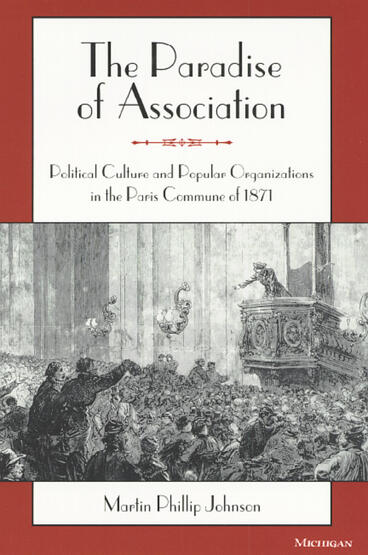The Paradise of Association
Political Culture and Popular Organizations in the Paris Commune of 1871
Combines a detailed social analysis of club militants with a "new cultural history" perspective.
Description
The Paradise of Association is the first comprehensive treatment of the tumultuous revolutionary clubs in the Paris of 1871. It proposes an innovative approach to the Paris Commune, the largest urban uprising in modern European history. For Marx and Lenin the Commune was a brilliant harbinger of proletarian dictatorship; for others, it was merely the last of the nineteenth-century revolutions. The Paradise of Association argues instead that the Commune resulted from revolutionary action by popular clubs, and it was shaped by the unique political culture fostered within them. The volume combines a detailed social analysis of 733 club militants with a "new cultural history" perspective, examining the language and practices of popular organizations in relation to such topics as historical memory, gender difference, definitions of citizenship, and revolutionary symbolism.
The first study of popular organizations during the Commune to take full advantage of the abundant archival materials, this book reveals previously unsuspected coordination and consciousness by revolutionaries in preparation for a seizure of power.
"Clubistes" were socially diverse individuals very likely to have a history of revolutionary activity. They did not constitute a social class, but rather a culturally and politically defined revolutionary community. A prominent feature of the political culture of popular organizations was the cult of revolutionary violence, based upon the memory of the French Revolution. By dominating the Commune, club militants imposed their political culture upon the nascent revolution and upon the capital.
This new perspective on the Commune entails revising several assumptions about the development of socialism and the evolution of party structures and popular movements in the late nineteenth century. It will be of interest to historians, to those interested in the relationship between popular culture and politics, and to researchers and students of gender relations and class dynamics in revolutionary movements.
Martin Johnson is Lecturer in History, University of Nevada, Las Vegas.

